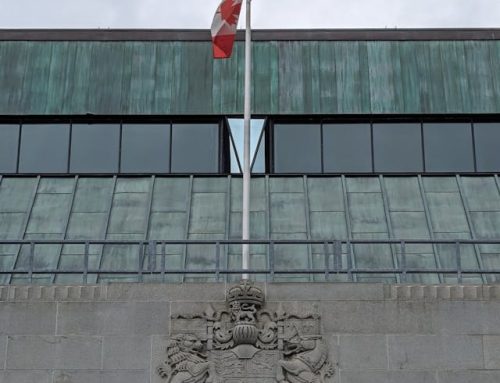Federal Court Rules Interest Payable on Amount Refunded to Taxpayer
Glatt v. Canada (National Revenue) 2019 FC 738 (Glatt Decision Here)
Summary
This case deals with the question of whether the Minister had an obligation to pay interest on a refund to the Applicant, who had been assessed a hefty penalty under the Income Tax Act’s (“Act”) ‘planner’ provisions. the Applicant paid advance funds of $1,000,000 to offset the interest. The Applicant objected and appealed. The parties settled before trial. The Minister reassessed to cancel the penalty and returned the prepaid amount to the Applicant without paying any interest on it. The Federal Court determined that the Minister was required to pay interest on that amount.
Background
The CRA issued a Notice of Assessment to the Applicant on June 12, 2012, levying a penalty of $2,890,050 pursuant to section 163.2 of the Act. The Assessment did not refer to a specific taxation year.
The Applicant filed a Notice of Objection to the Assessment on August 30, 2012, and on November 8, 2013, paid the $1 million in an effort to reduce interest charges if the challenge to the Assessment was unsuccessful.
The Applicant then filed a Notice of Appeal with the Tax Court on December 7, 2015. On May 25, 2016, the Respondent agreed to allow the appeal, which the Tax Court endorsed on August 10, 2016.
As a result of this Judgment, on December 7, 2016 the Respondent issued a Notice of Reassessment which refunded the $1 million but did not pay interest on that amount. The Reassessment explicitly indicated that the taxation year was 2012.
Issue
The main issue was whether the CRA was required to pay interest on the prepaid assessed amount. The main preliminary issue, answered in the affirmative, was whether the Federal Court was the proper venue to hear this matter.
Position of Parties
Applicant
The Applicant’s main argument was that third-party penalties pursuant to subsection 163.2(2) must be in respect of a taxation year due to the wording of subsection 152(4). Specifically, because subsection 152(4) allows the issuance of assessments and reassessments in respect of a year, an assessment under section 163.2 must therefore also be in respect of a year. Furthermore, the actual Reassessment itself states 2012 as the taxation year.
Respondent
First, section 26 of the Financial Administration Act, RSC 1985, c F-11 only allows the Minister to make payments when authorized to do so by statute. Here, it was not.
The Crown also argued that the Minister is only required to refund interest where amounts have been collected in respect of a taxation year, and that penalties for third party representatives under section 163.2 are not in respect of a taxation year. The Crown argued that if Parliament had intended for the planner penalty to refer to a taxation year, it would have explicated that intention, much like it did in the context of gross negligence penalties in subsection 163(2).
The Crown also argued that the inclusion of ‘2012’ on the Reassessment was simply an error.
Decision & Analysis
The decision is interesting because it uses 152(8) against the CRA to deem an assessment valid and binding, where historically it has been used to the benefit of the CRA.
Subsection 152(8) deems that an assessment shall be valid and binding notwithstanding any error, defect or omission in the assessment or in any proceeding under this Act relating thereto. Since an assessment includes a reassessment, 152(8) applies to the herein reassessment.
The Court did not appreciate that the CRA attempted to use its alleged error of including a particular taxation year as a sword rather than a shield.
The converse should not be true. Simply because the Minister now feels that she can point to an error based on her interpretation of the statute, she should not be able to point to something like the taxation year and assert it is an error that undermines the validity of the Reassessment, the net effect of which conveniently relieves her from an obligation to provide an interest payment to a taxpayer.[1]
Furthermore, the Court was not convinced that a taxation year could not have been associated with the CRA’s imposition of the penalty, mainly because in most cases, assessments and penalties are tied to a particular taxation year.
The Crown also argued that the Reassessment was actually a notice of refund, and not a reassessment at all. The Court rejected this, because the CRA should be held to a higher standard due to its unlimited resources coupled with the significant amount of the refund.
The Court thus ordered that interest was payable on the $1million.
Key Takeaway
There was an issue as to whether the Applicant was out of time to bring the judicial review. The Crown argued that because the Reassessment was a final decision dated December 7, 2016, and the application for judicial review was filed on September 20, 2017, the Applicant was well beyond the 30-day Federal Court filing deadline. The Court agreed the Applicant was out of time but went on in its analysis to determine if an extension of time should be granted.
To grant an extension of time, there must be (i) a continuing intention to pursue the application, (ii) some merit to the application, (iii) no prejudice to the Respondent, and (iv) a reasonable explanation for the delay (Canada (AG) v Hennelly (1999), 244 NR 399 (FCA).
The Court found that the Applicant met the Hennelly test, mainly because of its repeated attempted to recover the interest. Since the Applicant had a continuing interest to pursue the interest issue, the extension of time was warranted. Furthermore, in the Court’s view, dismissing this judicial review for lateness would have undermined the interests of justice.
[1] Glatt v. Canada (National Revenue) 2019 FC 738, at para. 94.



